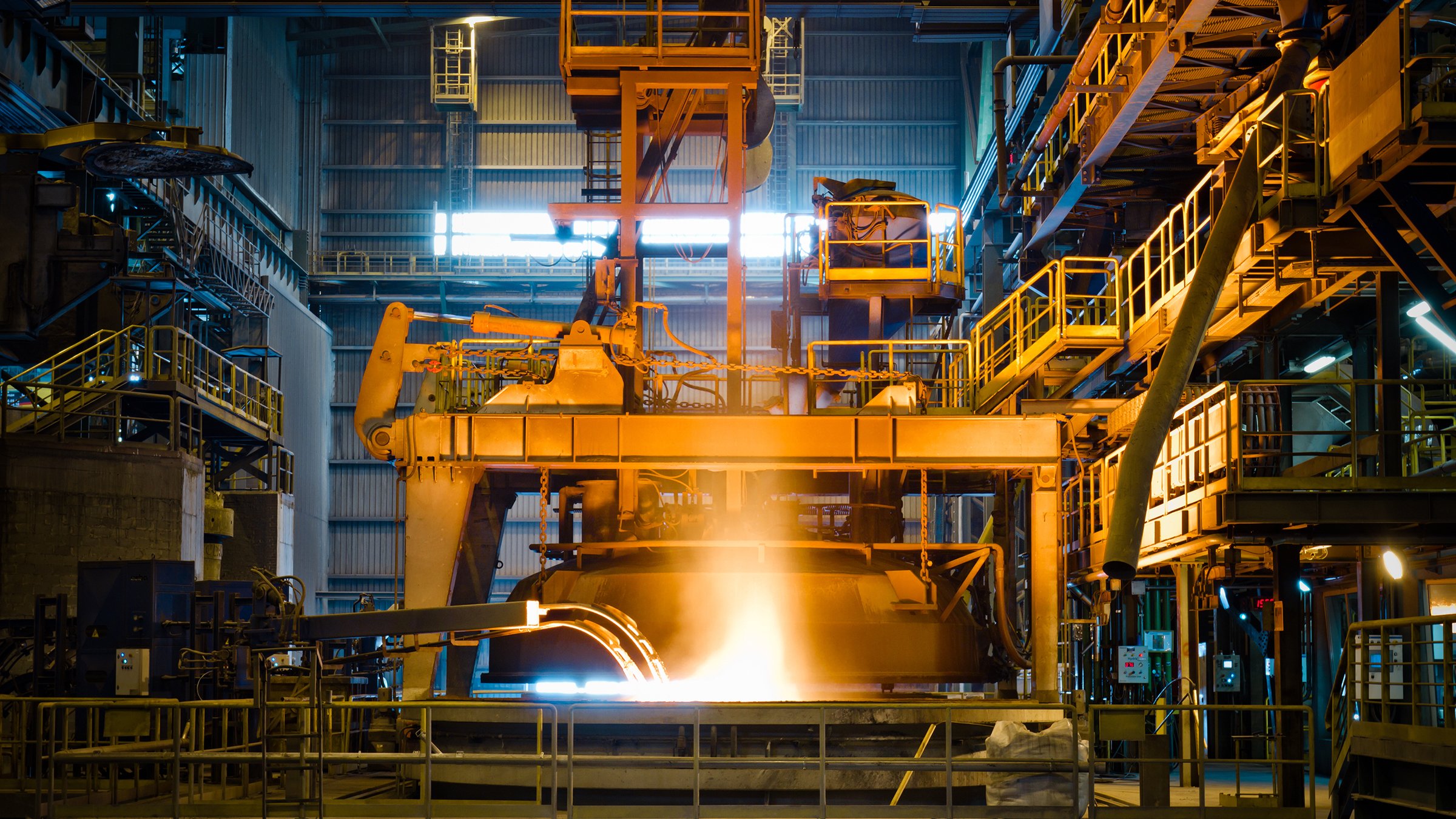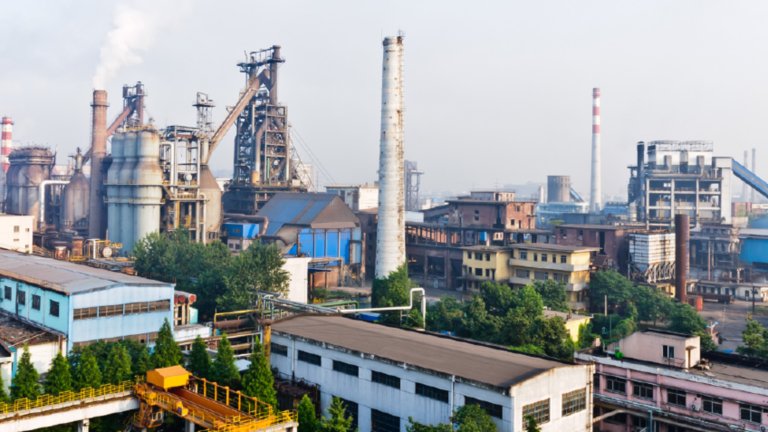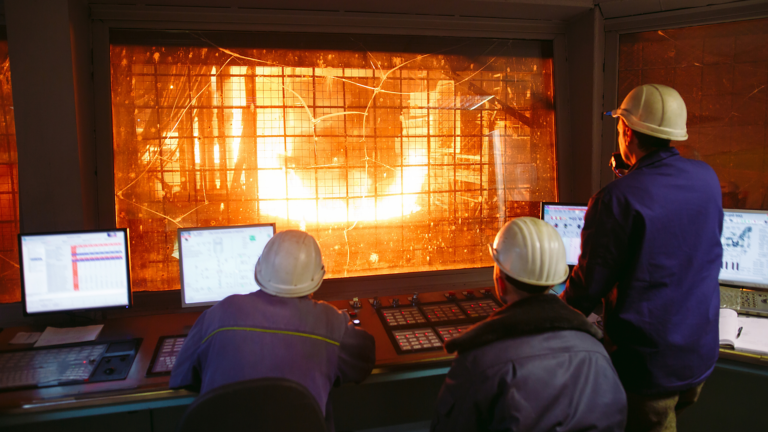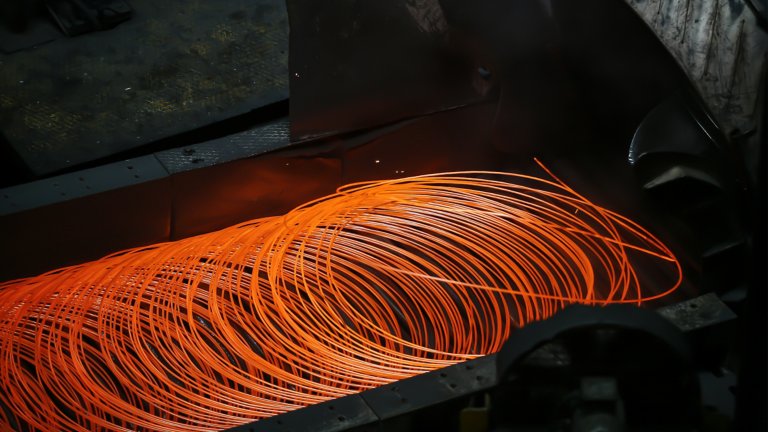Steel producers today are dealing with a myriad of challenges, which are being made even more complex by trade challenges, aging workforces approaching retirement and the market still expressing overcapacity concern. Our dedicated industry team will apply specific application and process experience to create the right control solutions for you.
Extract Value at Every Stage of Your Steel Process
Enable Raw Material to Market Visibility with the Connected Steel Plant
A Connected Steel Plant can link your processes, assets and people to provide a holistic view of your entire operation. Robust, easy to access data allows you to view contextualized asset information, reduce downtime and manage your most important activities. Create more efficient, profitable operations that help you lead the way into the future.
Steel Industry Automation Solutions by Area: Increase Your Operational Efficiency
Get the most out of your processes and equipment and improve your overall productivity with tested and validated architectures and dedicated functionalities for metals operations.
Iron and Steel Processes
Maintaining efficiency and consistency is critical within the iron production and steelmaking processes, ensuring quality and operational stability through threat of variation.
Casting, Rolling and Finishing
Precise control in motor-intensive applications can impact the quality of final products and help minimize downtime.
Utilities Control
From power distribution to crane controls, these applications are key to support any steel mill.
Opportunities in Green Steel
The next big thing in sustainable materials innovation
The steel industry is responsible for 8% of man-made CO2 emissions. Urgent action is needed to initiate a decarbonization process. Steelmakers who improve the sustainability of their operations can help advance this process and build the future of Green Steel.
Digital Transformation: From Strategies to Solutions
Use the latest and greatest in digital technology tools to overcome your business challenges and reshape your operations. Integrated technologies allow the opportunity to maximize plant performance, remotely manage asset performance, and reduce energy and emissions. Gain a holistic view of your plant by smartly managing your maintenance activities.
How We've Helped Businessess Like Yours
Through different strategies of developing digital transformation solutions, expanding operational capabilities, saving costs, reducing downtime, and increasing production, we have been working with metals companies to achieve one common goal of improving overall operations.
How Automation in the Steel Industry Works
The industrial metal processing industry is complex and one that faces many unique challenges, which prevent businesses from reaching their full potential. However, with advanced technology, like steel automation solutions, businesses can optimize their operational efficiencies, reduce safety risks, and drive better decision-making across processes.
Challenges in the Industrial Metal Processing Industry
The steel and industrial metals industry faces many challenges, ranging from supply chain and quality management issues to maintaining worker safety and regulatory compliance. Some of the most common challenges faced by businesses in this sector include:
- Supply chain management – outdated technology and fragmented operations often prevent businesses from adjusting inventory to meet fluctuating market trends.
- Maintaining worker safety – steel processing relies on high-temperature transformations to achieve the final product, a process that can put workers at severe risk of bodily harm or injury.
- Adherence to pollution and waste management regulations – the steel industry is one of the biggest contributors to man-made CO2 emissions, and the processes used can create hazardous byproducts that need to be disposed of safely.
- Excess capacity – the current gap between global steelmaking capacity and the world demand is leading to financial difficulties for many steelmakers.
- Quality assurance – the structural integrity of products must meet stringent regulations to ensure its safety in end usage.
What is Automation in the Steel Industry?
Industrial metal and steel automation refers to the many advanced technologies that can be incorporated into industrial metal manufacturing processes to increase operational efficiency, reduce risks to workers, and ensure regulatory compliance.
What Processes Can be Automated?
Steel automation solutions can range from physically automating processes and equipment, such as power distribution or stacker-reclaimer control, to digital solutions, like automated metal distribution software. Common processes that can be automated include:
- Casting
- Rolling
- Finishing
- Slab handling
- Coil handling
- Crane control
- Dip tank and coil storage operations
- Power distribution
This combination of automation technology enables manufacturers to streamline their processes from maintaining supply levels to delivering end products, and everything in between.
Benefits of Steel Automation
Industrial metal and steel automation provides businesses with a holistic view of their operations, empowering them to maintain end-to-end operational efficiency. Some of the biggest benefits of incorporating these automation solutions include:
- Improved operational efficiency
- Reduced production costs
- Data-driven decision-making capabilities
- Ensured adherence to regulatory compliance
- Increased worker safety
Others also viewed
Based on your activity








